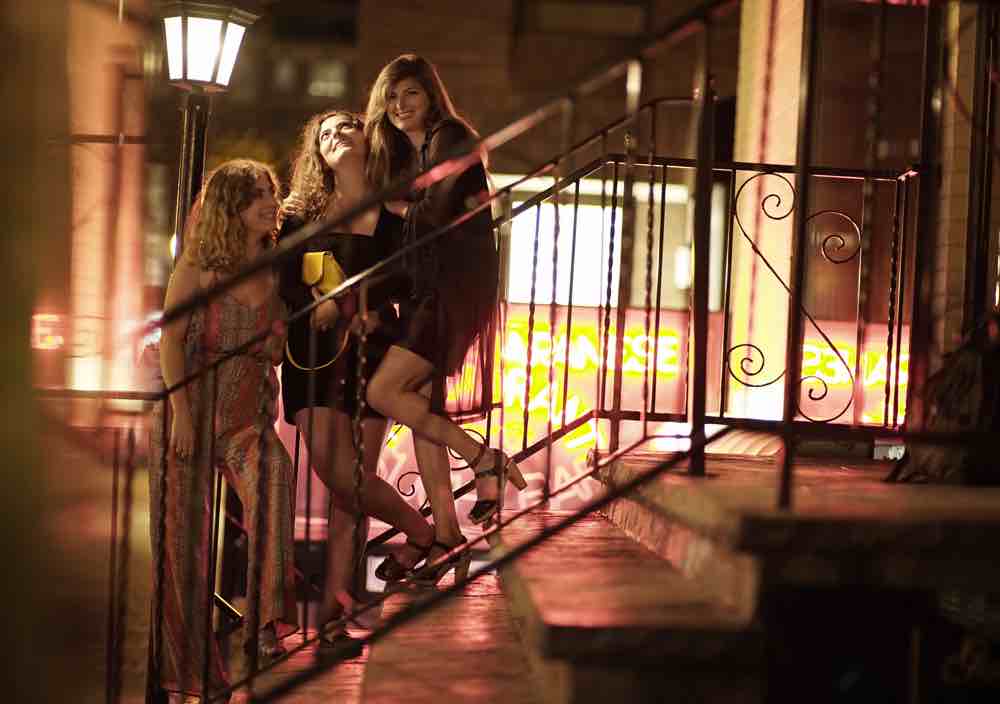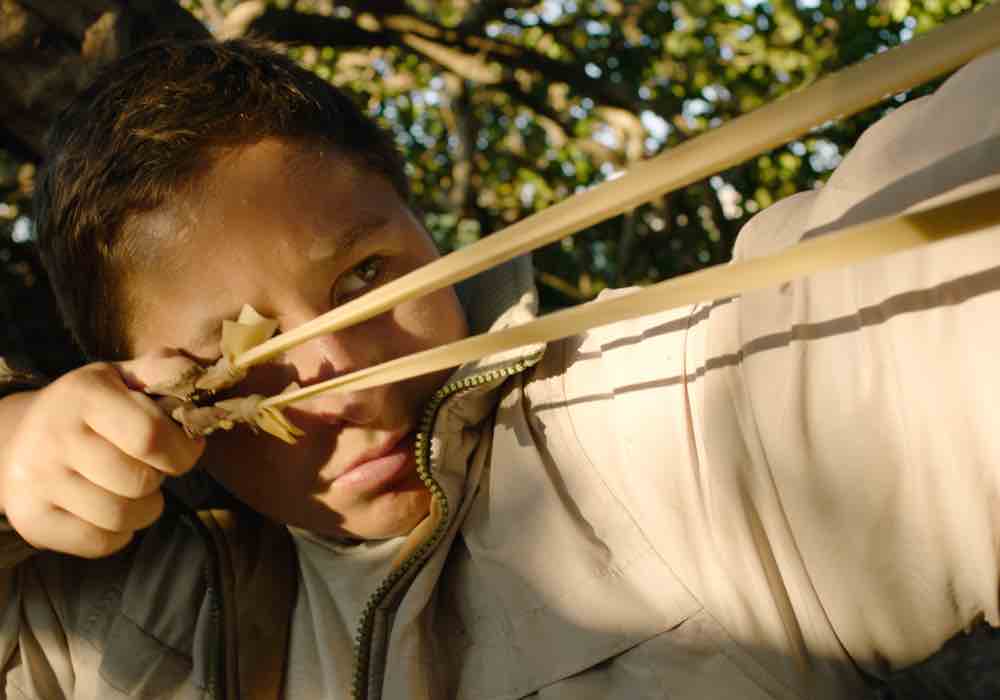What is the difference between being a “Sugar Baby” and a sex worker? Is it a viable way to make an income? Filmmaker Hannah Donegan explores these questions and more in Sugar Sisters, a documentary in which she and her sisters try out life as a Sugar Baby.

Sugar Sisters, produced by the CBC documentary series First Hand, follows filmmaker Hannah Donegan as she delves into the opportunistic dating scene, in which older men pay for dates with younger women. A Sugar Baby is a woman or man who exchanges their time and emotional labour to date wealthy Sugar Daddies or Sugar Mommies for money. Even though sex may not be on the table on these dates, when sex is presented as a possibility, suddenly Sugar dating can transition into the world of sex work. This morally grey area can develop long term economic-based partnerships. For instance, one Sugar baby had several Sugar Daddies paying for her university tuition. However, performing sex work can be slightly uncomfortable for many Sugar Babies, causing them to stop.
Donegan and co-director Ann Shin explore heterosexual dating relationships between older, wealthy men and younger women in need of financial stability. When Hannah told her sisters, Caroline and Amalia, that she wanted to try Sugar dating in order to pay her piling debts, the sisters came back to Toronto to find their very own Sugar Daddy. But when Hannah finds much more financial gain than her sisters while Sugar dating, and it begins to take over her life, her sisters begin to feel resentment towards her. Things are even more complicated for Hannah by the fact that she was already in a romantic relationship with her girlfriend, Jocelyn, when the filming started. Will Hannah decide to pursue the bottom line or try to retain her fractured familial relationships?
Before the CBC premiere, I talked to director and central participant Hannah Donegan about her experience making this documentary.
The Seventh Row (7R): How did this project come to be in partnership with the CBC?
Hannah Donegan (HD): We pitched it to CBC in its infancy. I told my sisters that I was doing a film about Sugar Babies and Sugar Daddies and [that] I was going to find one as part of the film. They were both out of town, and they immediately came home within a month. They wanted to find Sugar Daddies, too. That’s a way better film. So it was less exploratory and investigative than our initial pitch and much more personal. The CBC series First Hand is all about personal [point of view] docs. They loved, obviously, that we’re sisters.

7R: Because significant tensions develops between you and your sisters, how did you plan the shooting of those scenes?
HD: I had to plan a couple scenes and moments. I would not tell [Amalia], for example, that I’m going to New York. I would wait ‘till I saw her when a crew was present. In that respect, I was sort of editing certain points of my life with the film in mind. I had to sort of put up mini-blockers, which is an interesting exercise. Perhaps, without the camera, some of those conversations would have been a little bit more sensitive.
If my [sister] was [mad] at me for something, [I said,] “I’m not going to engage with you about this right now,” which obviously pissed her off, too. The bigger point of tension that this film created in my life [is] forcing a lot of people to be on camera a lot of the time. Amalia stopped really wanting to be on camera. Amalia was really frustrated with the crew coming around all the time and felt it was taking over my life. Then, it was taking over our relationship. There was definitely an angle that we cut out of the film where I was more presented as the filmmaker and the presence of the crew was a lot more known.
7R: How did you defend your decisions to your parents, especially your mother?
HD: I don’t think most mothers would be into this thing. My mother feels you have to fight for the right to make your money, to be paid equally, to not have to be paid to feed some guy’s ego, not to serve a man. My feminism includes owning my sexuality, and sometimes charging for that. I present as a woman everyday, and a lot of it is learned behaviour from a very young age. It’s all work. It’s not easy to present as a feminine woman.
The idea of getting paid for that, it seemed like I was getting some sort comeuppance. I want power. I think getting paid gave me some of that power. When I first started the project, I definitely had this [idea that] I’m going to grab the patriarchy by the balls, [and] I’m going to milk its attitude.
[clickToTweet tweet=”The challenge for me is it stopped feeling like a job. It felt like I was selling my whole life.” quote=”The challenge for me is it stopped feeling like a job. It felt like I was selling my whole life.”]
7R: How viable is it for struggling female millennials to work as a Sugar Baby?
HD: As long you’re not pushing your boundaries, it’s totally viable. You have to understand what it’s going to cost in order to make this a viable job opportunity. The challenge for me is it stopped feeling like a job. It felt like I was selling my whole life. It’s not necessarily sex work, but selling your femininity, your womanhood, your youth for money is an element involved in it.
[clickToTweet tweet=”People wouldn’t have someone to give them the emotional labour…often offered by women for free.” quote=”People wouldn’t have someone in their life to give them the emotional labour that they need…that is often offered by women for free in relationships.”]
7R: Learning about the differences between sex work and Sugar Babies, I felt that Sugar dating was more intimate than a relationship between an escort and their client.
HD: I think the work that Sugar Babies do, what they are being paid for, is for [their] emotional labour. Andrea [the former escort in the film] is being paid for a set amount of time. And there’s some emotional labour that happens during that time. It’s almost always sexual. With Sugar Babies, it’s not always sexual, and it might become sexual. But it’s not necessarily the point. People wouldn’t have someone in their life to give them the emotional labour that they need. It’s a valuable thing that is often offered by women for free in relationships.
[clickToTweet tweet=”For Sugar Babies, it’s not always sexual. It might become sexual. But it’s not necessarily the point.” quote=”With Sugar Babies, it’s not always sexual. It might become sexual. But it’s not necessarily the point.”]
7R: There is a natural exchange when you are in a romantic relationship. One partner gives something in order to gain something back, except with no labels attached. Were there other perspectives on dating or male Sugar Babies that you couldn’t fit into the film?
HD: We touched on it when we went to New York. A lot of the women didn’t want to call it Sugar [dating]. But they would date in a scene where they were meeting people who are wealthier than them. When I asked, “Is it important to have a partner who is financially stable?” They said, “Yes.” Then I asked, “Would you stay with a partner if they lost their job and they lost all their money?” A lot of them hemmed and hawed and [said], “Probably not.” Financial stability is hugely important in the relationships they are looking for.
[clickToTweet tweet=”We decided to focus on the power dynamic inherent if an older man provides cash to a younger woman. ” quote=”We decided to focus on the power dynamic that’s inherent with a sort of heterosexual relationship, especially if it’s an older man providing cash to a younger woman. “]
For the film, we decided to focus on the power dynamic that’s inherent with a sort of hetero[sexual] relationship, especially if it’s an older man providing cash to a younger woman. One of the most interesting things to learn hands on was how much power I had within the situation. I was the one being paid. I was taking cash. From an outside prospective, it looks like I’m being taken advantage of. But I often felt like I was taking advantage of these men.
There are a lot of Sugar Babies that are men who date older men. Often, the older men are closeted or married, [and] they feel like paying for it is a way to get what they want without having to come out as gay. There’s a lot of Sugar Mommies, too. I’ve tried to find a Sugar Momma, but I think older rich lesbians are kind of very in demand.
[clickToTweet tweet=”I don’t know what I’d do if I had no idea how to date? Paying someone to show up seems reasonable.” quote=”I don’t know what I would do if I had no idea how to date? Paying someone to get to know me and actually just show up seems reasonable.”]
7R: When you had dates with Sugar Daddies, did conversations come up about them dating women or Sugar Babies their own age?
HD: One of my favourite dates that stands out in my mind, I was at work. Someone messaged me and said, “Would you meet me for a quick lunch?” So we met at Salad King for 40 minutes. And I met a man who was recently divorced [and] hadn’t dated anyone, since before he was married over 30 years ago. He had no idea how to online date [and] how to go about dating, so he was a bit lost.

He wasn’t necessarily looking to be someone’s Sugar Daddy, but he liked that money was offered as an exchange [on these sites]. You don’t spend two weeks courting online, sending each other photos, judging each other based on how you look. He could get someone on an actual date in real life and decide if he actually likes them, which was a very genuine [and] sweet thing to hear from someone.
I don’t know what I would do if I had no idea how to date? Paying someone to get to know me and actually just show up seems reasonable. I ended up giving him dating advice [on] where to go and how to seek out people that he is looking for. Then, at the end, he gave me $80.

